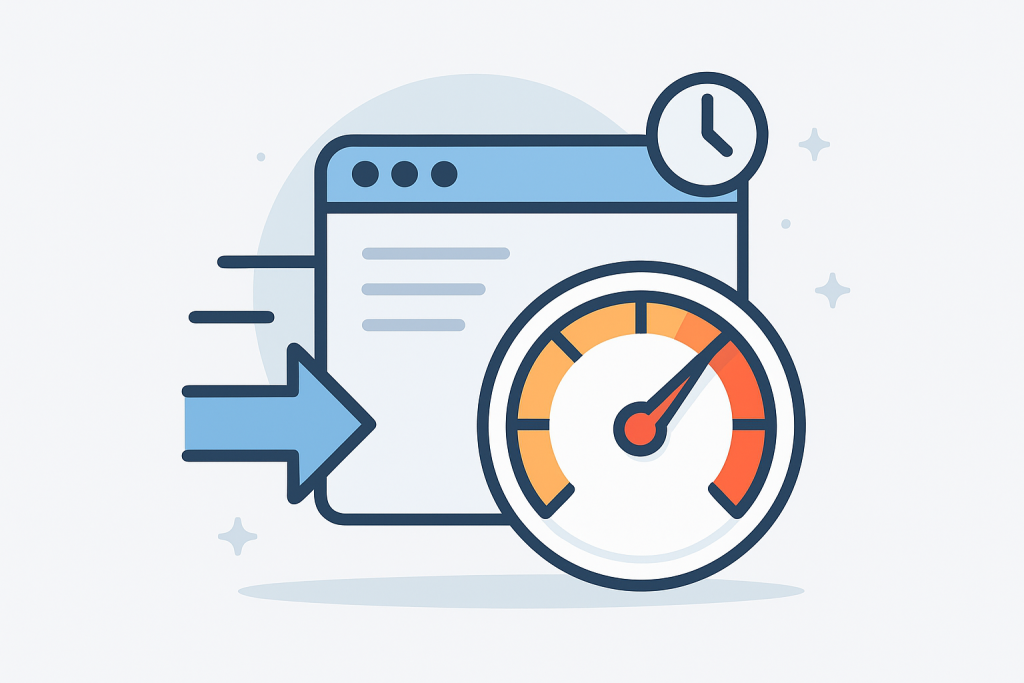Proven Techniques to Optimize Browser Speed

Proven Techniques to Optimize Browser Speed
Understanding Browser Speed and Why It Matters
Browser speed is a crucial factor that affects your overall web experience. Simply put, it determines how quickly web pages load and respond to your actions. As a result, a faster browser can significantly improve productivity and reduce frustration. Moreover, with the increasing complexity of modern websites, the demand for speed is higher than ever.
Therefore, understanding what affects browser speed helps you make informed choices when selecting or configuring your browser.
Factors That Affect Browser Speed
Several factors influence how fast your browser runs. First, your device’s hardware capabilities such as CPU speed and RAM play a major role. Additionally, the number of open tabs and running extensions can impact performance. Furthermore, network speed and website design also contribute to loading times.
In particular, websites with heavy scripts and media files tend to slow down browsers. On the other hand, well-optimized sites load faster and provide a smoother experience.
Simple Tips to Improve Browser Speed
There are a few straightforward steps anyone can take to boost browser speed. Firstly, keeping your browser updated ensures you benefit from the latest performance improvements. Secondly, clearing cache and cookies periodically prevents data bloat. Thirdly, closing unused tabs reduces memory usage and CPU load.
Additionally, disabling or removing unnecessary extensions can also speed up your browser. Finally, choosing a browser optimized for your operating system might make a noticeable difference.
How to Check Your Browser Speed
To assess your browser’s speed, use online benchmarking tools. For example, Speedometer and JetStream measure responsiveness and JavaScript performance. Moreover, Lighthouse provides detailed reports on load times and best practices. By regularly testing your browser, you can monitor improvements or identify issues.
Benefits of Using a Fast Browser
Using a fast browser brings several advantages. Firstly, it reduces wait times, making your workflow more efficient. Secondly, faster browsing conserves battery life on mobile devices. Additionally, it lowers system resource consumption, which can prevent overheating and prolong hardware lifespan.
In summary, choosing a browser with top-notch speed capabilities enhances your overall digital experience.
Internal and External Resources for Further Reading
To deepen your knowledge, explore our detailed guides on popular browsers: Google Chrome Guide 2025 and Firefox Browser Guide 2025. Additionally, check out our articles on extensions and security that help maintain speed: Best Ad Blockers 2025 and Browser Security Extensions.

Advanced Browser Speed Optimization Techniques
Once you have covered the basics, there are several advanced methods you can use to squeeze more performance from your browser. First, focus on resource management: modern web pages often load dozens of scripts, fonts, and third-party widgets. Consequently, reducing unnecessary resource loading directly improves browser speed. Moreover, make selective use of performance settings built into your browser: hardware acceleration, process limits, and experimental flags can help in many cases.
For example, enabling hardware acceleration offloads some rendering tasks to the GPU, which often results in smoother animations and faster page painting. However, bear in mind that on some older systems this can backfire, so test changes incrementally. Similarly, limiting the number of content processes (where available) lowers memory pressure and can improve responsiveness on low-RAM machines.
Optimizing Extensions and Tabs to Boost Browser Speed
Extensions and many open tabs are frequent culprits behind slow browsing. Therefore, regularly audit installed add-ons and remove anything redundant. In addition, use tab management strategies to reduce background activity: suspend idle tabs, group related tabs, or pin only the most important pages.
- Audit extensions: Disable or uninstall extensions you rarely use.
- Tab suspension: Use a lightweight tab suspender to unload inactive tabs and free up memory.
- Limit background processes: Close apps that run heavy background network tasks while browsing.
If you prefer a hands-on approach, use built-in profiling tools (like Chrome DevTools or Firefox Performance) to identify extensions or scripts that cause long tasks and high CPU usage. This is practical and, importantly, often reveals a single problematic extension or website responsible for most slowdown.
Comparing Popular Browsers: Which Is Fastest?
Browser performance varies by workload and platform. In general, Chromium-based browsers (Google Chrome, Microsoft Edge, Brave) tend to excel in JavaScript performance and have aggressive optimization pipelines. Firefox, powered by the Gecko engine, often favors memory efficiency and privacy features that can indirectly affect speed.
That said, real-world performance depends on your use case. If you regularly run dozens of extensions, a lightweight browser with minimalist defaults may feel faster. Conversely, if you rely on heavy web applications, a browser with superior JavaScript and rendering performance will deliver better results. For detailed comparisons, check our deep dives: Google Chrome Guide 2025 and Firefox Browser Guide 2025.
Network and System-Level Tweaks That Improve Browser Speed
In addition to browser settings, network and system tweaks play a vital role. For instance, switching to a DNS resolver with faster lookup times can reduce initial connection latency. Services like Google Public DNS or Cloudflare DNS are commonly recommended. Also, ensuring your operating system and drivers (especially GPU drivers) are up to date prevents compatibility bottlenecks that may slow rendering.
If you’re on Wi-Fi, improving signal strength—by repositioning your router or switching to the 5 GHz band—reduces packet loss and retransmits, which speeds up page loads. Additionally, consider disabling bandwidth-heavy background updates (automatic cloud backup, torrent clients, large software downloads) when you need peak browser performance.
Security vs Speed: Finding the Right Balance
Security extensions and privacy tools are essential, yet some impose performance overhead. Therefore, find a balance: pick efficient ad-blockers and privacy extensions proven to block trackers while remaining lightweight. Our curated lists—like Best Ad Blockers 2025 and Browser Security Extensions—highlight options with minimal speed impact.
Measuring Improvements: Benchmarks and Real-World Tests
After applying optimizations, measure the difference. Use synthetic benchmarks for a baseline and complement them with real-world tests for practical insight. Tools like Speedometer and Lighthouse provide objective metrics, while a simple timing test (load the same heavy page multiple times) gives you a feel for perceived speed.
Record results before and after each change so you know which tweak actually helped. If an optimization makes things worse, revert it—this methodical approach saves time and avoids chasing phantom issues.
Practical Checklist to Maximize Browser Speed
- Update browser and OS regularly.
- Remove or disable unnecessary extensions.
- Use a good ad-blocker with optimized rules. (See our Best Ad Blockers 2025 list.)
- Enable hardware acceleration if it benefits your device.
- Clear cache and cookies periodically, but keep frequently used site data cached.
- Limit the number of active tabs, or use tab suspension for idle tabs.
- Improve DNS and network setup—consider Cloudflare or Google DNS for lower lookup times.
- Run benchmarks before and after changes to confirm improvements.
Future Trends That Will Shape Browser Speed
Looking forward, browser speed will continue to benefit from several industry trends. First, improved JavaScript engines and Just-In-Time (JIT) compiler optimizations will keep making web apps more responsive. Second, features like HTTP/3 and QUIC reduce latency and improve throughput for many sites. Third, WebAssembly is enabling near-native performance for compute-intensive tasks that previously slowed pages.
Moreover, browsers are increasingly adopting smarter heuristics to manage resources—suspending background tabs automatically, prioritizing visible content, and throttling expensive timers. These improvements mean that, over time, users will experience faster browsing by default, even without manual tuning.
Stay informed by following authoritative sources such as MDN Web Docs and W3C for standards and best practices.
Conclusion: Make Browser Speed a Habit
Ultimately, improving browser speed is part technical and part habit. By routinely auditing extensions, optimizing system and network settings, and staying current with browser updates and standards, you will consistently get better performance. Remember: small, steady changes—applied thoughtfully—often produce the most dependable gains.
To continue learning, explore more guides on our site: Google Chrome Guide 2025, Firefox Browser Guide 2025, and check related tips like Best Browser Extensions for Students 2025.
